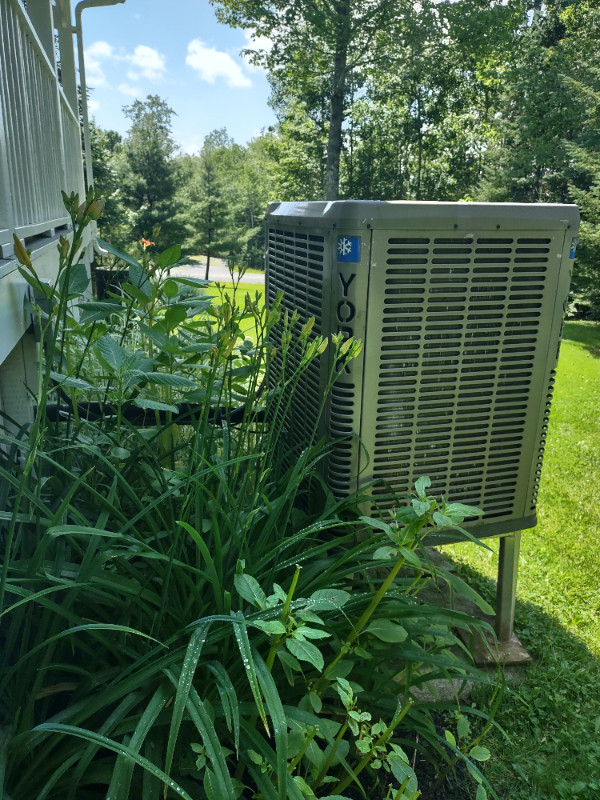When the lights suddenly go out and your appliances stop humming, you might not immediately consider the potential impact on your air conditioning unit. However, power outages can pose hidden perils to your AC system. In this blog post, we’ll explore the risks associated with power outages and how they can potentially damage your AC unit. We’ll also provide insights into preventive measures you can take to safeguard your cooling system.
Understanding the Vulnerabilities: How Power Outages Affect AC Units
Your AC unit relies on a complex interplay of electrical components to function efficiently. A sudden loss of power, whether due to a storm, equipment failure, or grid issues, can disrupt this delicate balance and expose your AC unit to various risks.
Common Risks and Potential Damages
Power Surges: One of the most immediate dangers during a power outage is the possibility of a power surge when electricity is restored. Power surges can overload sensitive AC components, leading to irreversible damage.
Compressor Strain: A power outage followed by a sudden restoration of power can cause the compressor to work harder to stabilize the system. This increased strain can lead to wear and tear on the compressor over time.
Startup Stress: When the power returns after an outage, the AC system goes through a startup phase. This surge of power and the abrupt demand on the system can lead to motor and capacitor stress, potentially shortening their lifespan.
Circuit Board Damage: AC units contain electronic circuit boards that can be sensitive to power fluctuations. A sudden power outage can disrupt these boards, affecting the unit’s control and operation.
Preventive Measures to Protect Your AC Unit
- Install Surge Protectors: Surge protectors are essential for safeguarding your AC unit against power surges. Install surge protectors at the main electrical panel and dedicated protectors for the AC system.
- Use a Delayed Restart Device: These devices introduce a delay in restarting your AC unit after a power outage, allowing the system to stabilize gradually and reducing the strain on components.
- Unplug During Outages: If you’re aware of an impending power outage, consider unplugging your AC unit to prevent potential damage from sudden power restoration.
- Consider a Generator: Investing in a backup generator can provide uninterrupted power supply during outages, ensuring your AC unit remains operational.
Conclusion
While power outages might seem like momentary inconveniences, they can have lasting effects on your AC unit. The risks of power surges, compressor strain, startup stress, and circuit board damage are real perils that can compromise your cooling system’s efficiency and longevity. By implementing preventive measures like surge protectors, delayed restart devices, unplugging during outages, and considering backup generators, you can shield your AC unit from the potential damages caused by power interruptions.
Don’t overlook the impact of power outages on your AC unit’s health. With the right precautions in place, you can ensure that your cooling system remains resilient even in the face of unexpected electrical disruptions.
FAQs
1. Can a power surge really damage my AC unit?
Yes, power surges can cause significant damage to AC units. They can overload components, leading to costly repairs or replacements.
2. How does a delayed restart device work?
A delayed restart device introduces a time delay before your AC unit restarts after a power outage. This delay allows the system to stabilize gradually, reducing strain on components.
3. Will unplugging my AC unit during an outage really help?
Unplugging your AC unit during an outage can prevent potential damage from power surges or sudden power restoration. It’s a precautionary measure that can protect your unit.
4. Are backup generators worth the investment?
Backup generators provide a reliable power supply during outages, ensuring your AC unit and other essential appliances remain operational. The investment can be worthwhile for maintaining comfort and convenience.
Zeeshan is a seasoned tech expert and senior writer at Teckrr.com. With over 10 years of experience in tech journalism, he brings insightful analysis and up-to-date information on the latest tech trends. Zeeshan holds a MBA degree from Business and Tech University and is known for his engaging writing style and ability to demystify complex tech topics. Stay connected with the cutting-edge of technology through his expert lens.

Leave a Reply